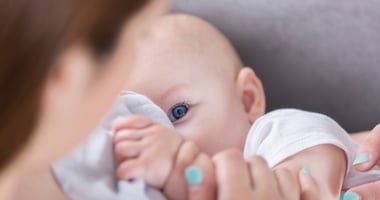Women who drink alcohol while breastfeeding may be more likely to have children with reduced...
Home Visits Bring Multiple Benefits to American-Indian Teen Mothers
 |
"American Indian adolescents...have the highest rates of teen pregnancy, substance use, suicide, and dropping out of school of any racial or ethnic group in the country," said lead researcher Allison Barlow, M.P.H., Ph.D. (photo above), associate director of the Johns Hopkins Center for Indian Health, and colleagues, in the study "Paraprofessional-Delivered Home-Visiting Intervention for American Indian Teen Mothers and Children..." published in AJP in Advance.
The home visitors—called family health workers—were young women recruited from the same Apache and Navajo reservations in Arizona as the teen mothers and so understood their language and culture. In the study, all 322 patients received "optimized standard care," including transportation to clinic visits, information on child care, and referrals to local services. The study's goal was "to evaluate the intervention’s effects on parental competence (parenting knowledge, locus of control, stress, and behaviors) and maternal behavioral problems that impede effective parenting through early childhood.... Secondary aims were to evaluate intervention effects on early childhood emotional and behavioral outcomes."
Mothers randomized to the intervention group also received the Family Spirit program, including training in observing their babies, interpreting their cries, reading to them, and developing routines. Home visits began during pregnancy and continued until the child was 36 months old. Intervention-group mothers demonstrated more parenting knowledge, less substance use, and lower scores of depression and externalizing problems. Their children also had fewer externalizing and internalizing problems and dysregulation.
The family health workers also benefited from the program. "After they were trained by Hopkins, not one is unemployed," said Barlow in an interview. "They are either in school or working in health-related jobs."
(Image: Johns Hopkins University)





